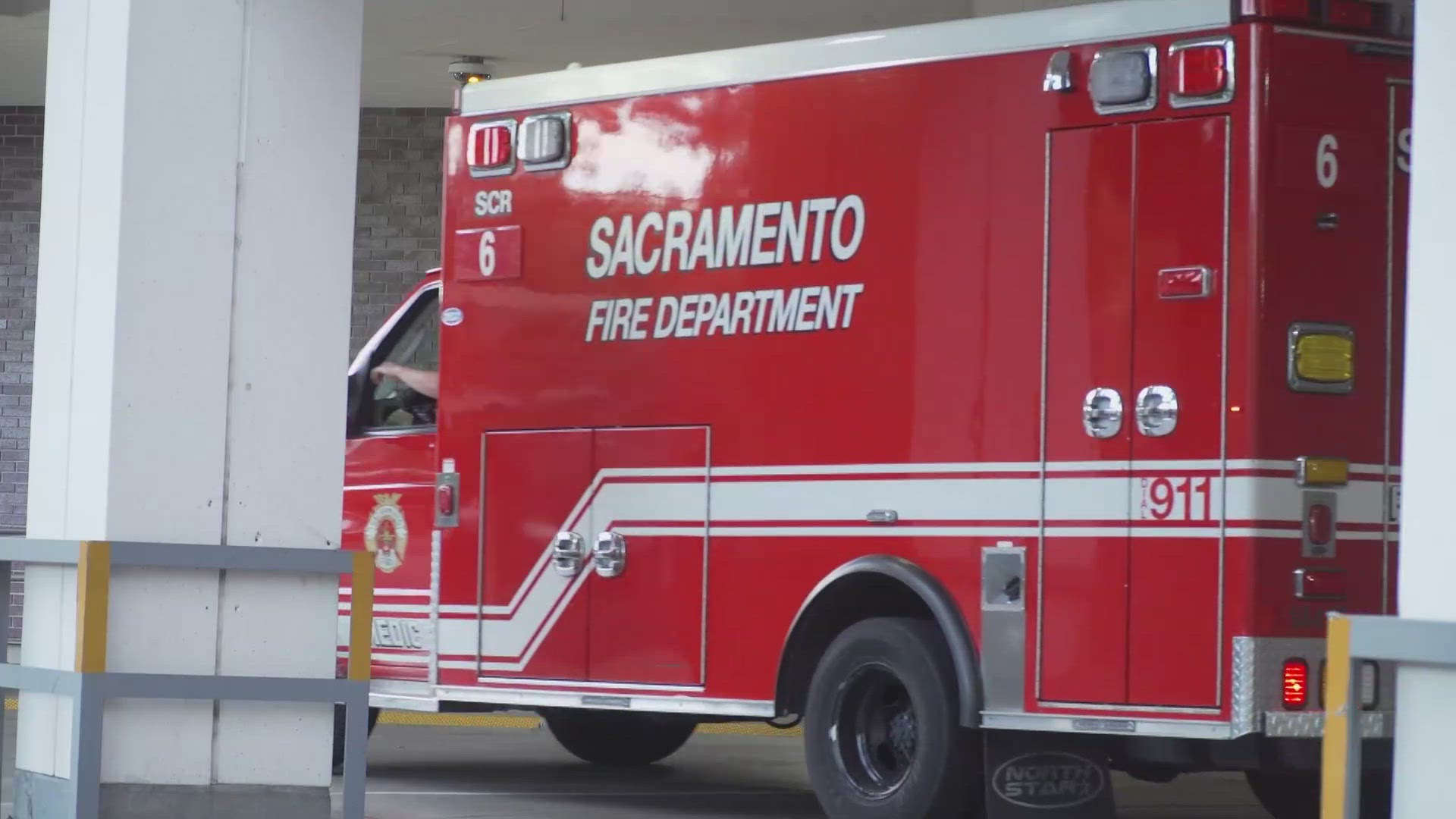SACRAMENTO, Calif. — Emergency calls are on the rise in the Sacramento area which is promoting the Sacramento Fire Department (SFD) to make a partnership with the private sector to help boost response time and for the county to decrease ambulance offload times.
The Sacramento City Council approved hiring four private ambulances from Medic Ambulance, to provide support for non-life-threatening calls, while SFD paramedics respond to life-threatening calls.
“If they do want to get transported, we can utilize one of these BLS (Basic Life Support) ambulances from Medic Ambulance to facilitate that transport and that won't not tie up our ALS (Advanced Life Support) ambulances for life-threatening emergencies,” said Sacramento Fire Captain Justin Sylvia. “This allows more ambulances to be on the ground out in the field.”
Sylvia says the measure looks to help boost response time, specifically when ambulances are held up at hospitals because hospitals are not accepting patients quickly.
ABC10 has reported ambulances' average offload times in Sacramento County, for patients experiencing non-life-threatening emergencies, were well above 90 minutes.
The County Director of Emergency Medical Services Agency Dr. Greg Kann says it is now below 40 minutes.
“At the end of September, we came down to 39 minutes. Just in the first week of October, we have even seen a continual trend down to 37 minutes,” said Dr. Kann.
Dr. Kann adds the major reason for the drop is a new law, Assembly Bill 40, which requires hospitals in the state to have patients' wait times be no longer than 30 minutes for offloading, 90 percent of the time.
“That legislation set the groundwork to really open the door for the tough conversations that we need to have,” said Dr. Kann.
Kann says their goal is to bring it down to 20 minutes, 90 percent of the time.
Sylvia adds this is another tool for the department to serve and strengthen the community.
“It is not going to compromise patient care whatsoever. That is not what we are doing. We are trying to better our service delivery model,” said Capt. Sylvia.
Soon the county will be starting a new program called ‘Triage to Alternate Destinations,' which helps direct patients to the proper services such as behavioral health services, sobering services, and mental health support rather than sending patients to conventional emergency departments.



















